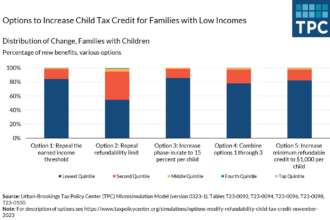A fan of Neymar Jr. made headlines last week when he declared that he was leaving his estate to the football phenom.
The anonymous fan told the online newspaper Metrópoles that, in addition to his love for the Brazilian national team, he identified with the Paris Saint-Germain striker. He said, in an interview, “I like Neymar, I identify with him a lot. I also suffer with defamation, I am also very family-oriented and the relationship with his father reminds me a lot of mine with my father, who has passed away.”
The fan isn’t old—just 31 years of age—but noted, “I am not in very good health and, because of that, I really saw that I don’t have anyone to leave my things to… I wouldn’t want the government or relatives I don’t get along with to take my things.” He explained that he had tried to turn over his assets during his lifetime but was advised instead to draw up a will. He did—and had it notarized (a photo of the will is on the Metropoles website here).
The relevant language in the document is simple: “É manifesta a derradeira vontade do testador, que respeitada a legitima, determina que a parte disponivel dos seus bens, fique para Neymar da Silva Santos, Junior…” That’s the equivalent of what we would call a residuary clause in the US when, after any specific bequests, you name who receives the balance—or residue—of your estate.
As the story spread, so did criticisms of the fan’s plan. Some pointed out that it was odd to identify with a person you’ve never met, while others pointed out that Neymar didn’t need the money. Neymar has earned an estimated $85 million over the past year, landing him at No. 12 on Forbes’ list of the world’s highest-paid athletes.
I get that it’s easier to poke fun. You may disagree with the fan’s decision, but I think that the criticism is misguided. Here are a few things that I believe he got right.
He Had A Plan
Most Americans don’t have a will. According to a 2020 Gallup poll, slightly less than half of US adults—or 46%—have a will describing how they would like their money and estate handled after their death. A survey conducted by Caring.com during the pandemic placed that number even lower, suggesting that only 33% of Americans have an estate plan. Those numbers confirm what most tax and estates lawyers like me already know: getting folks to talk about and carry out an estate plan can be difficult.
Why so few? Surveys—and real life—suggest that the top reason for not creating a will is that people just don’t get around to considering how they want their assets to be distributed after death. Often, this has to do with age (they think they’re too young) or assets (they think they don’t have enough to worry about passing on). Others don’t know how to get started or fear that it might cost too much. So, they don’t take any action at all.
But this fan? Even though he’s young, he realized that planning for the disposition of his assets was important. And, since he indicated that his health wasn’t good, he knew that putting off his estate planning wasn’t a good idea. So he took action.
He Kept Trying
According to Metropoles, the fan initially tried to gift his assets to Neymar. When that didn’t work, he came up with another plan: leave the assets to the footballer in his will.
It’s not unusual for clients to have an idea that isn’t possible to carry out either as a matter of law or practice. But that doesn’t mean that the ultimate goal isn’t possible. It just means that they have to find another way to carry out their wishes—that’s where a good estate planner can come in handy.
I admire this fan’s tenacity. When his initial plan didn’t work, he didn’t give up. He tried a different method—the outcome should essentially be the same for him.
He Knew What He Did—And Didn’t—Want
Folks may avoid estate planning because they believe that they don’t need to plan because their assets will pass to their “next of kin”—whatever that means.
When you die without a will, your assets pass by intestacy, which means that they are distributed according to state law. In Pennsylvania, for example, if you die without a will and you’re married with no children and no living parents, your estate will pass to your surviving spouse—that’s what most people expect. But if you’re married, and your children or parents survive you, your assets will pass via a formula to your children and spouse (or to your parents and spouse if you have no children or direct heirs).
If you don’t have a surviving spouse, there’s also a distribution scheme—first, to your children or direct heirs. If you don’t have children, your estate passes to your parents if they’re still alive. If they’re not still alive, your assets will pass to your brothers, sisters, or their direct heirs—and if none of them are alive, then to your grandparents or their heirs (typically, your uncles and aunts). It gets… complicated. And if you survive all of your family, your assets will pass to the state.
That’s not always a desirable outcome, especially for those with nontraditional families or relationships that might feel like family but aren’t—like the close family friend you’ve always thought of as your aunt.
The anonymous fan—who had already lost his father—made clear didn’t want his assets passing to relatives he didn’t know or the government. He wanted to direct his assets where he wanted them to go.
There Is No ‘Means Testing’ For Wills
One of the most vocal criticisms of the bequest to Neymar is that the footballer doesn’t need the money. To that, I would say, “And?” Arguably, many of the beneficiaries of gifts and estates don’t “need” the money—that isn’t necessarily the point of estate planning. It may be the case that you want to provide for someone—or an organization like a charity—that you believe could benefit from your money, but it may also be the case that you want to leave someone assets simply out of love and affection.
There’s no ceiling or floor on what you can pass to beneficiaries in your will (although there may be thresholds subject to tax), and there’s no gatekeeper to decide whether someone needs the money, or is deserving enough. That’s up to you.
He Can Change His Mind
One of the things that can be intimidating about making a will is that it feels so… final. Only it’s not. Most estate planning documents, including a will, can be changed at any time.
While this fan believes that Neymar is deserving right now, he might change his mind later. What if the fan has decided that he’s a PSG fan for life—and Neymar returns to FC Barcelona, which, per recent reports, is a real possibility? What if the fan—who loves the national team—decides that he prefers Brazilian national team players Vini Jr. or Marta? What if the fan gets married? Or has kids?
The reality is that a lot can change over a few years, but it’s best to be prepared for today. You can always change it later.
Final Thoughts
I get that leaving your assets to your favorite footballer isn’t everyone’s cup of tea. And it can be easy to criticize someone who makes choices that are different from your own. But when it’s your money, you get to decide where it goes.
I’m an avid football fan (though I call it soccer). I can assure you that my will doesn’t have any bequests for my favorite players, and that’s not just because I’m confident that the likes of Gareth Bale and Andre Blake will be okay on their own. I simply have other priorities.
That’s the great thing about estate planning. It’s your plan that reflects your circumstances and your values—and if that means that you want to leave your assets to one of the world’s richest soccer players, I think that’s okay.
Read the full article here









